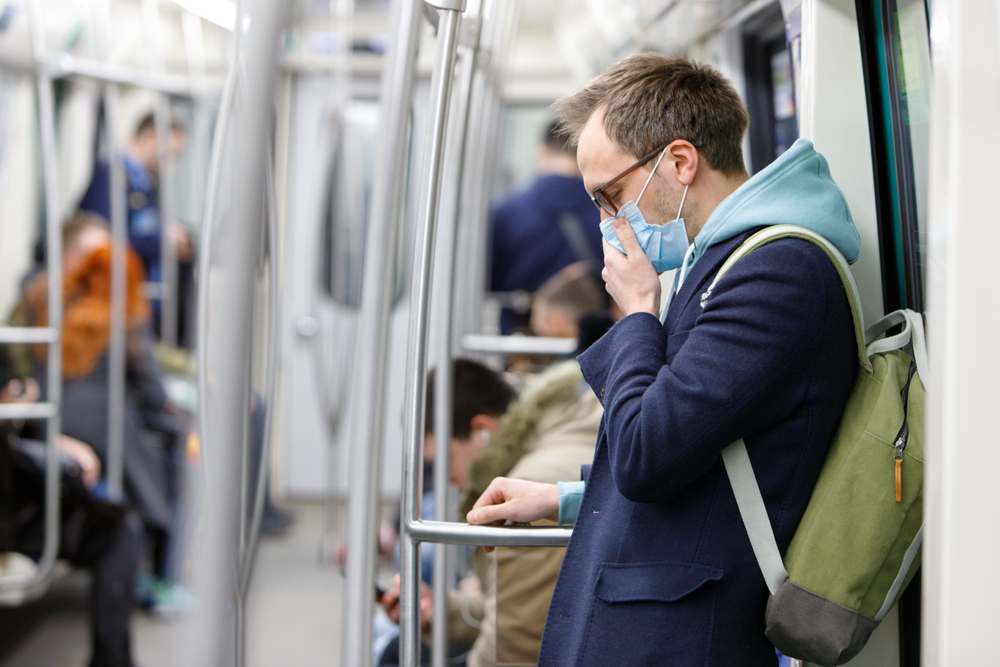COVID-19, the novel coronavirus that originated in Wuhan, China has since spread to different parts of the globe, including the United States. Attitudes have varied; many regard practices like social distancing, the temporary closure of schools and other public places, and the overall disruption to daily life an overreaction. Others have taken it to the extreme, loading up their grocery store carts with months-worth of non-perishable foods, cleaning supplies, and other household items. I interviewed Lightbeam’s Director of Clinical Transformation, Jessica Scruton, BSN, RN, CCM, to learn her take on the drastically different sentiments behind coronavirus, the reasoning behind these stricter preventative measures, and understanding why forgoing certain events now can genuinely save lives later.
Jessica, what do you believe is the most frightening thing to Americans about COVID-19?
In my mind, it is the same with anything: the unknown. The reality facing the U.S. and the world is that we do not know as much as we thought we did about the long-term impact or the virus itself. Sure, we know it resembles the flu in affecting the most vulnerable groups like the elderly, the immunocompromised, cancer patients, and others, but the fact that the incubation period is up to two weeks, many people are contagious for this period before they even show symptoms, which is also the scariest concern for providers. I believe that fact frightens people the most, and healthy people that are considered to be low-risk become so preoccupied with not catching it instead of realizing you have to maintain a clear head and heed the warnings put out by physicians, experts, and government officials until we finally reach its peak.
In the last week or so, I have felt like there was a major shift in people’s attitudes from a milder concern to panic.
I know, everyone has. On every news channel, there is hardly talk of anything else but this virus. I believe that is what has mainly perpetuated the panic and the buying out of grocery store shelves. It is a challenging predicament; if there is not enough coverage, you run the risk of people not taking it seriously enough. But now, we have people buying a surplus of meat, canned soups, and toilet paper as if they cannot leave their homes for months, and now other people are out of luck. The thought process behind social distancing is that we are limiting our time in public as much as possible right now while the virus is the most contagious, but not entirely.
I want to point out that there are patients in the intensive care unit (ICU) in critical condition near us in Dallas that are in their 20s and 30s. The fact that they are currently hospitalized proves how much we currently do not know about the virus and preventing its spread comes down to taking the responsibility of self-quarantining.
Social distancing has been all over social media for a good reason, and it seems like a lot of people are spreading the word about it and other practices to mitigate the spread of the virus. Do you have any additional recommendations as a nurse?
None other than what the Centers for Disease Control and Prevention (CDC) suggests: wash your hands frequently for more than 20 seconds with warm water, wipe down frequently touched surfaces and other areas, cover your mouth if you sneeze, and other common hygiene practices. Of course, if you can, practice social distancing and lay low for the sake of others. The focus really needs to be on the strain on resources as well as keeping those at high-risk away from the virus. The lower-risk people need to be careful as well, as we have seen it impact them too.
How do we keep this from becoming a larger impact on our healthcare system?
Really, by putting everything I mentioned into practice. It is critical for the long-term strain on our healthcare system. With large numbers of people needing care at one time, we will reach capacity, which is why all of these measures are so important. A close friend of mine shared that her grandmother’s open-heart, triple bypass surgery is canceled indefinitely because of the coronavirus. There is essentially not enough room in the ICU for her because of their current number of admitted patients, and the surgeon does not feel comfortable having her there with the virus active in other patients. Her heart is only functioning between 30 to 33% capacity, and she is at risk for stroke, cardiac arrest, and other issues. Heeding the CDC and other government warnings are critical for people like her that coronavirus poses the primary threat to, however directly or indirectly it may be.

Laurel Derr is Lightbeam’s Marketing & Event Coordinator.
